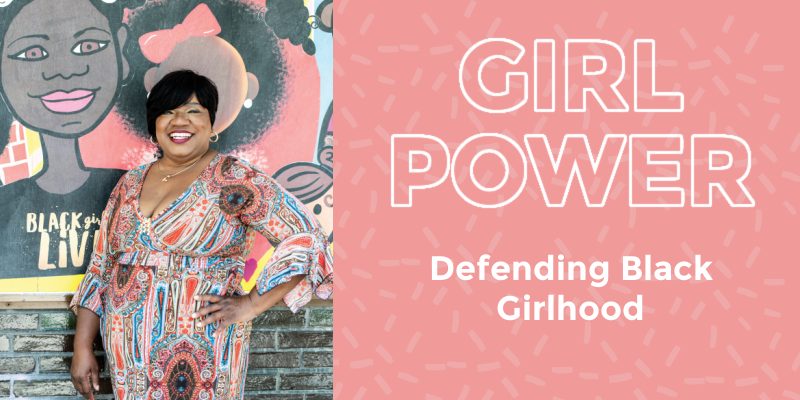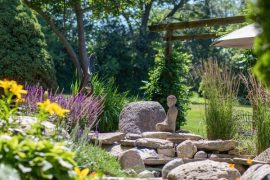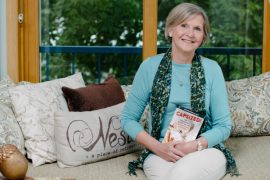By Jessica Steinhoff | Photography by Shalicia Johnson
For Lilada Gee, empowerment and courage go hand in hand. Sometimes, the best way to make people listen is to make them uncomfortable. Plus, there’s strength in being unapologetic, a fact she emphasizes in the lead-in to her “Defending Black Girlhood” podcast.
“One of the most important things we can do is allow Black girls the space to have a voice and a sense of agency, to speak about their experiences and have people listen and trust what they are saying,” says Gee, a Madison native who is an author, speaker, advocate and artist.
That’s why Gee launched “Defending Black Girlhood” in April 2020. The stories of Black girls and women are seldom told in the mainstream media, and when they are, someone else tends to be the storyteller. Her podcast, which numbers 50 episodes currently, puts Black girls and women in the spotlight and the driver’s seat, helping them tell their stories on their own terms. It also gives them a platform for reaching a larger audience, and a way to inform listeners while moving them to action.
The episodes’ titles often ask provocative questions like “Does Madison Love Black Girls?” and “Can Black Girls Be Successful in School?”
Gee digs for answers by interviewing guests like local Black women running for elected office and abuse survivors seeking social change. The first season examines the murder of Erika Hill, a Black teen from Fitchburg who disappeared in 2007. Gee explores who was culpable, what was overlooked and how Hill might have been saved. She also asks listeners if they will remember this young girl, pushing them to consider their own role in the systems that failed her.
Gee is especially concerned about Black girls’ wellbeing in schools and within social services, two institutions that failed to protect Hill. She says schools are often too quick to remove Black girls, which makes them vulnerable to violence and exploitation. She also worries that Child Protective Services remove too many Black girls from their homes when abuse or neglect is suspected, when other options might be considered. For example, if a parent has an undiagnosed mental illness, treatment could turn the tide for the family dynamic.
“Black children [are] being removed from their homes and placed in white homes through foster care and adoption,” Gee explains. “I’ve heard the stories of many adult Black women who’ve gone through this. It’s a trauma, and the wounds are deep.”
Gee says finding rarely told stories like these and “shining light into the darkness” is crucial, not only for the trauma survivors telling the stories but for those who haven’t found their voice yet. She sources many of these stories through her own network of friends, neighbors and colleagues.
At the same time, Gee challenges Madison to turn the mirror on itself.
One tool she uses for this is her art. She created multiple State Street murals in 2020, during protests about George Floyd’s murder.
“Black girls don’t often see themselves in the art that’s in schools, libraries and doctors’ offices, and there is something being communicated without it being said: ‘You are not beautiful, important or necessary.’ I need Black girls to know that they are seen and celebrated and beautiful — that they matter,” Gee says.
Another part of the process is ensuring that Black girls participate in the full range of opportunities offered in the community, especially in school.
“We need to ask how we can help diversify debate, theater [productions] and other places at school where Black girls can create, and where they can truly be seen and heard,” Gee says. “If you have all of these activities but don’t have Black girls there, something is wrong.”
Gee’s podcast can be found in the Apple Podcast, Spotify or Patreon apps.




